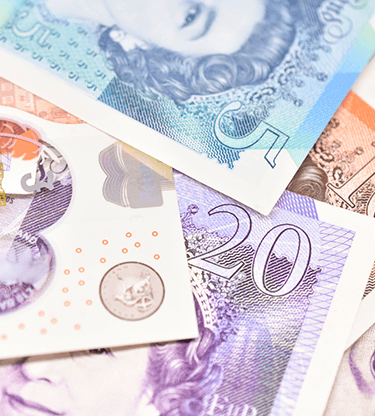Daily Brief

Share Story
One to go
3 minute readSterling ignores the data
A rebound in oil prices was the most obvious influence on exchange rates at the end of last week. The Norwegian krone was the strongest performer on Friday, and the only currency to outdo the pound. Canada’s dollar somehow missed out, despite a respectable set of employment data. It took fourth place behind the antipodeans.
Sterling was the other currency to miss out on reaction to the economic data. In this case it was a beneficial miss. The ecostats, which appeared ahead of London’s opening on Friday fell short of economists’ forecasts, without exception. Perhaps because it might seem rude to carp at annual increases of 27.7% and 20.7% for manufacturing and industrial output, investors didn’t. Nevertheless, both were a percentage point or more below what the market had been led to expect, and both were lower on the month. Similarly with gross domestic product, the 0.8% expansion estimated for May was well below the promised 1.5% monthly growth.
The situation was mitigated, to an extent, by the later data for trade and the NIESR’s pitch at second quarter growth (4). Exports rose and imports fell in May, and NIESR is looking for quarterly growth of 4.8% in Q2. Sterling came out if it with an average daily improvement of 0.4% and it was 0.7% higher on the week. Over the seven days, the pound took third place behind the safe-haven JPY and CHF.
The Loonie ignores the data
Because the first of the month fell in midweek, Canada’s employment figures did not coincide with the United States in July. They came out on Friday, but for all the good they did they might as well not have bothered.
The numbers in Canada’s Labour Force Survey for June were mostly better than expected. Payrolls went up by 231k and the participation rate increased to 65.2%, within touching distance of pre-pandemic levels. Unemployment at 7.8% was a notch higher than forecast, around the levels prevalent ten years ago. The Loonie was on average just about unchanged on the day and down by half a cent against sterling.
Over the weekend, European Central Bank President Christine Lagarde expanded on some of the changes to ECB policy. In light of the change to the inflation target from “just below but close to 2%” to “2%”, Ms Lagarde said she would update the guidance on the direction of monetary policy. For the avoidance of doubt, she said that now is not the time to be talking about any wind-down of asset purchases under the Pandemic Emergency Purchase Programme (PEPP). The euro is half a cent lower on the day.
South African business confidence
Monday is a virtual statistical desert. There are no significant ecostats today.
Overnight New Zealand reported that electronic card sales went up by a monthly 0.9% in June and were 4% higher on the year. The numbers did not help the Kiwi. Japanese producer prices rose 0.6% in June and machinery orders increased by 7.8% in May.
All that remains is a couple of South African statistics for business confidence and manufacturing production. Tonight brings the BRC’s take on UK retail sales, Australian new home sales and NAB’s measure of Australian business confidence.
Weekly roundup



